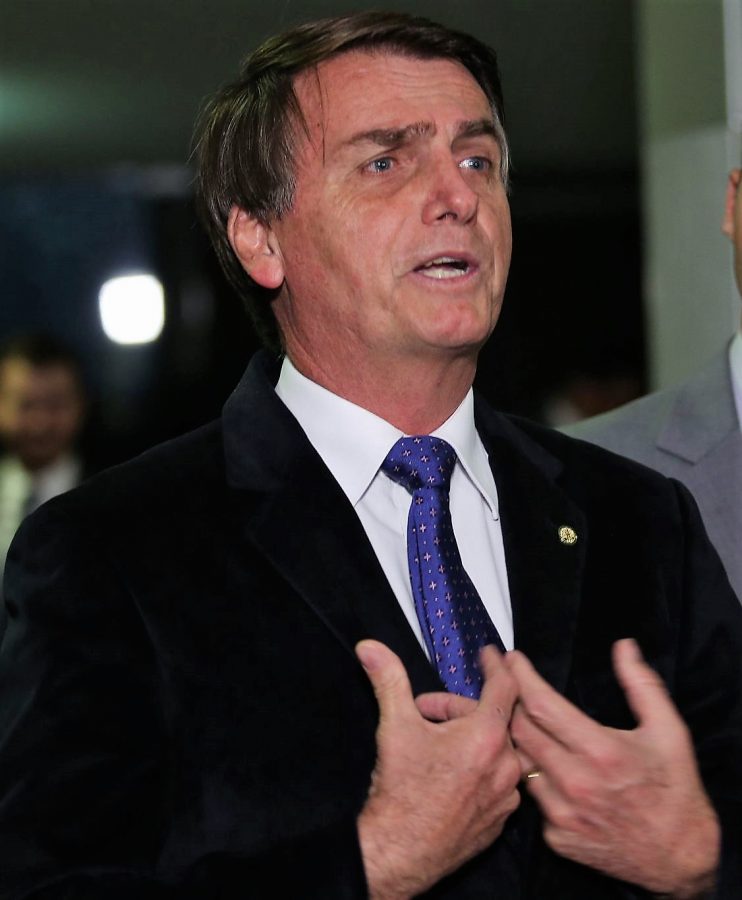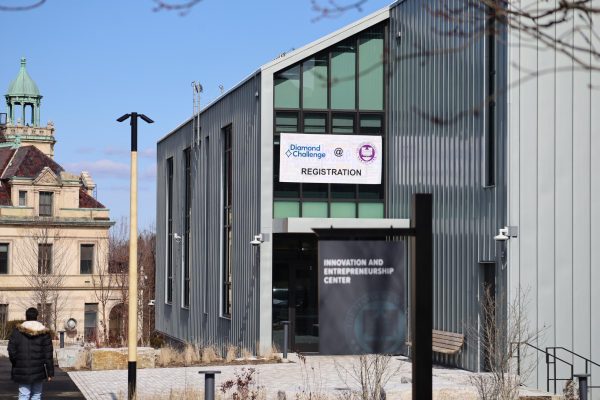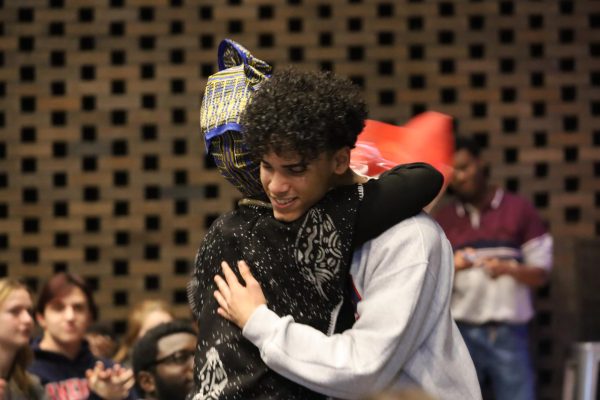Bolsonaro wins Brazilian election for Social Liberal Party
November 29, 2018
Jair Bolsonaro, a right-wing conservative of Brazil’s Social Liberal Party, won the presidency of Brazil, seemingly on trend with the global rise of right-wing parties. This growth of populism was also seen in the election of U.S. President Donald Trump and the near-election of Marie Le Pen to the French presidency.
Bolsonaro monopolized on the nation’s rampant corruption, particularly that of President Luiz Inácio Lula da Silva (Lula), and ran as an alternative to the traditional.
Just months ago, media deemed Bolsonaro unelectable by media because of his offensive comments about Afro-Brazilians, women, and the LGBTQ+ community, and his apologist attitude toward military dictatorship and torture. Lacking major party affiliation, his extreme growth in popularity was impressive. Not unlike U.S. President Donald Trump, he ran on a populist platform and used social media, particularly Twitter (on which he currently has 3.44 million followers) to interact with the populace.
Bolsonaro’s rise in popularity reflects a reversal in Brazil’s progress over the last few years. After hosting both the 2014 World Cup and the 2016 Olympics, Brazil’s economy collapsed. The gross domestic product of the nation dropped by nearly 9 percent due to a drop in salaries and a rise in interest rate. The nation’s first female president, Dilma Rousseff, was impeached under charges of mishandling the government budget and her predecessor, Lula, imprisoned for corruption. This toxic combination has led to the lowest confidence ratings in political institutions in the nation’s 30 years as a democracy, with 67 percent of people saying that had no confidence in Brazil’s congress.
Bolsonaro’s rivals in the election included Ciro Gomes of the Democratic Labor Party, Geraldo Alckmin of the Brazilian Social Democracy Party and Marina Silva of the Sustainability Network party. After leaving the Social Christian Party, Bolsonaro ran under the small Social Liberal party. Unlike the bipartisan politics of the United States, Brazil has five major parties and several more minor ones that all have seats the Federal Senate.
Bolsonaro’s support came mainly from those of the farming community in the southern and midwestern regions of the country. On top of corruption, Bolsonaro focused on the voters’ anger over taxes, poor government services and lack of job opportunities.
Caio Lanes, a sophomore boarder from Brazil, voiced his views against Bolsonaro. “Bolsonaro is a threat to Brazil’s democracy. His speech provokes fascism and violence. Just the other day, a supporter of his killed a member of the opposition campaign.” he said. Lanes is referring to the events of October 27 when a young man was shot and killed while taking part in a campaign event for the now defeated presidential candidate, Fernando Haddad. The man who fired the shot allegedly declared himself a Bolsonaro supporter.
Although he was leading in the polls near the end of the election, Bolsonaro was not exactly a shoo-in. Brazil’s electoral system, requires a second round of voting be held if no candidate gets over 50 percent. However, even after failing to secure over 50 percent the first and going into the second round of voting, Bolsonaro still secured a victory. He will assume office on Jan. 1, 2019.






















